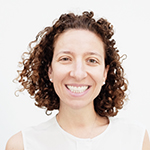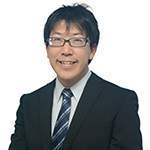Across the countries with Choosing Wisely campaigns, thousands of recommendations of “Things clinicians and patients should question” have been published. These lists and recommendations, familiar to many practising clinicians, outline tests, treatments, or procedures that evidence suggests are overused, unnecessary and may cause harm to patients. As some have pointed out, implementing these recommendations into practice can be challenging and slow.
However, there are a new cluster of recommendations which are being published, not by national clinical specialty societies, but by national medical student associations. These lists of recommendations do not focus on specific tests, treatments, and procedures that are overused, but rather on the training environment and culture that foster overuse. Medical student leaders are sharing the same message that reducing overuse begins in training.
Choosing Wisely lists for medical students and trainees create opportunities for students to initiate conversations about unnecessary tests, treatments, and procedures. The longstanding tradition of generating a lengthy differential diagnosis as a way of demonstrating medical knowledge has led to students incorrectly assuming that the best way to impress their faculty is to order an exhaustive list of investigations. However, the Choosing Wisely medical education lists encourage a more mindful approach, and urge students to consider displaying their knowledge by demonstrating restraint, thinking twice or asking the question “will the result of this test actually change how I manage this patient’s condition?” The lists represent student leadership in driving a shift in medical education, where thoroughness is appropriately balanced with thoughtfulness.
The Canadian Federation of Medical Students (CFMS) and the Fédération médicale étudiante du Québec (FMEQ) who together represent Canadian medical students surveyed nearly 2000 students to develop the first Choosing Wisely medical education list. The Resident Doctors of Canada (RDoC) representing postgraduate medical trainees also released a Choosing Wisely list for residents and trainees. Similar initiatives have followed in other countries. For example, the New Zealand Medical Students Association recently released a list of six recommendations as part of the country’s Choosing Wisely campaign. Accompanying the list is a mnemonic, WISE, which helps students to recall these “key concepts” in medical education, suggesting that prior to ordering tests, treatments, or procedures, students should be reflexive.
- Why? What will this test, treatment or procedure change?
- Is there an alternative? Less invasive, less resource intensive?
- Seek clarification. Clarify why the doctor ordered this test
- Explore/explain. Be the patient’s advocate. Explore concerns, take time to explain why a test, treatment or procedure is/isn’t necessary
Choosing Wisely Japan launched in October 2016. There is an active group of student leaders engaged in medical education from 19 of the country’s 82 medical schools. The “Choosing Wisely Japan Student Committee” has advocated for student leadership in the campaign in order to influence the clinical training environment, public engagement in the campaign, and their own future practice as physicians. The student committee has also developed a Choosing Wisely list, which encourages students to think twice, employ critical appraisal when ordering tests, treatments or procedures, and to not miss opportunities for conversations with patients or clinical supervisors.
Beyond list development, students are also demonstrating leadership at their medical schools and promoting resource stewardship education. Choosing Wisely Canada launched STARS (Students and Trainees Advocating for Resource Stewardship) in November 2015 to address a gap in undergraduate curricula with respect to resource-stewardship education across the country’s 17 medical schools. Grassroots, student-led activism has advocated for more inclusion of Choosing Wisely recommendations or training on resource stewardship in local curricula so that students are exposed to these concepts prior to their clinical rotations.
As we reach the end of this year, over 150 students across these 3 countries will call themselves STARS. This nascent group of student leaders are just beginning to implement efforts to influence medical training and culture, and recruiting their fellow students to join in their cause. Ultimately, the hope of student leadership for Choosing Wisely is that the next generation of clinicians will be practicing wisely from the very beginning.
See also: Medical trainees should question why they preemptively order “routine” tests and investigations
 Karen B Born, PhD is Knowledge Translation Lead, Choosing Wisely Canada and an Assistant Professor, Institute of Health Policy, Management & Evaluation, University of Toronto.
Karen B Born, PhD is Knowledge Translation Lead, Choosing Wisely Canada and an Assistant Professor, Institute of Health Policy, Management & Evaluation, University of Toronto.
 Yuki Kaji, MD is a, researcher of International Research Center for Medical Education, Graduate School of Medicine, the University of Tokyo and Advisor to the Choosing Wisely Japan Student committee.
Yuki Kaji, MD is a, researcher of International Research Center for Medical Education, Graduate School of Medicine, the University of Tokyo and Advisor to the Choosing Wisely Japan Student committee.
 Brian M Wong, MD is a general internist at Sunnybrook Health Sciences and an associate professor, Department of Medicine, University of Toronto. He is Medical Education Lead of Choosing Wisely Canada.
Brian M Wong, MD is a general internist at Sunnybrook Health Sciences and an associate professor, Department of Medicine, University of Toronto. He is Medical Education Lead of Choosing Wisely Canada.
Competing interests: None declared
